EFNS Offices
Head Office, Vienna
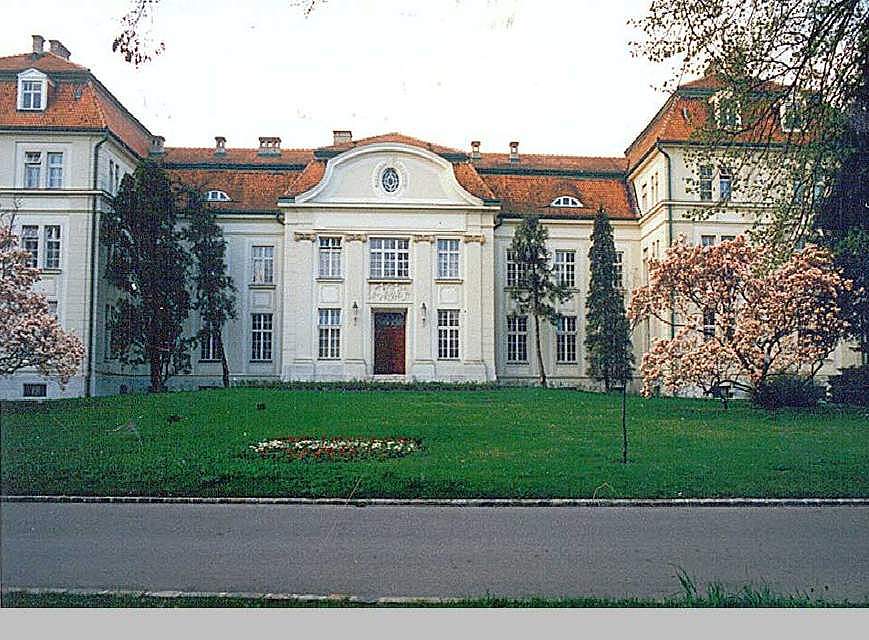
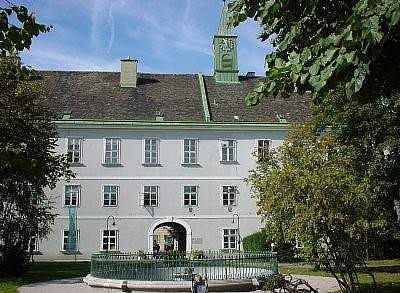
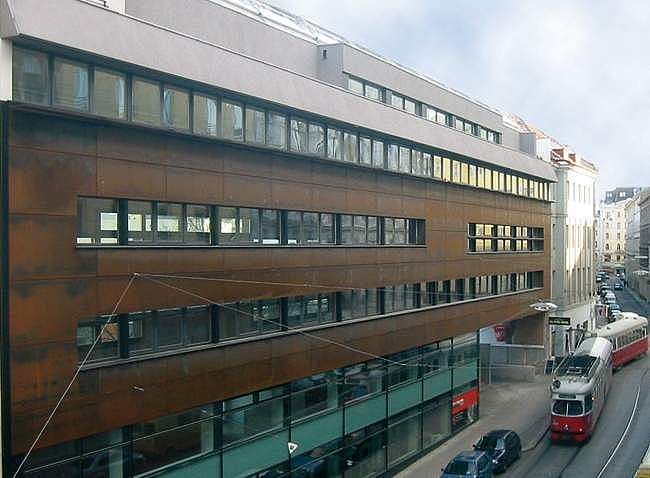
The office of the Östereichische Gesellschaft für Neurologie und Psychiatrie (ÖGNP) was located in a room at the Neurological Hospital Rosenhügel in Vienna. Uschi Tschabitscher worked part time for this society in the office. Already before the foundation of the EFNS in 1991 Franz Gerstenbrand was a member of the management committee of this society and with the permission of the Austrian Society and the medical director of the hospital, Professor Gernot Schnaberth, the EFNS could use this room (free of charge). Uschi Tschabitscher was then able to start her brilliant work for the EFNS.
After a short time her workload increased and the engagement of a second person was urgent. That was the moment when Lisa Müller, joined the secretariat of the EFNS. However, not only the workload increased, but also the stationary / papers, computers, telephones, faxes and congress materials…- and EFNS had to look for more space and more people.
Uschi was acquainted with the director of the Wiener Medizinische Akademie, a non-profit professional congress organisation in Vienna. This organisation had its office in an administrative building of the old Wiener Allgemeines Krankenhaus, which dates back to Joseph II in 1780 and was nowadays renewed as the University Campus. Starting from 2002, EFNS could rent two rooms from them in this location, and in addition, ENFS was also allowed to use their meeting rooms.
Due to the good financial development of the EFNS, the Management Committee considered to purchase an office of its own and asked Eberhard Deisenhammer (after approval by council) to look for it. Together with Lisa Müller and Anja Sander, a further co-worker in the office since 2003, he spent some time viewing many real estates and finally found a freshly finished building just above the Museumsquartier and near the centre of the city.
After the decision to join with the ENS, it was clear, that this office space will also be kept as the EAN Headoffice.
Branch Office Florence
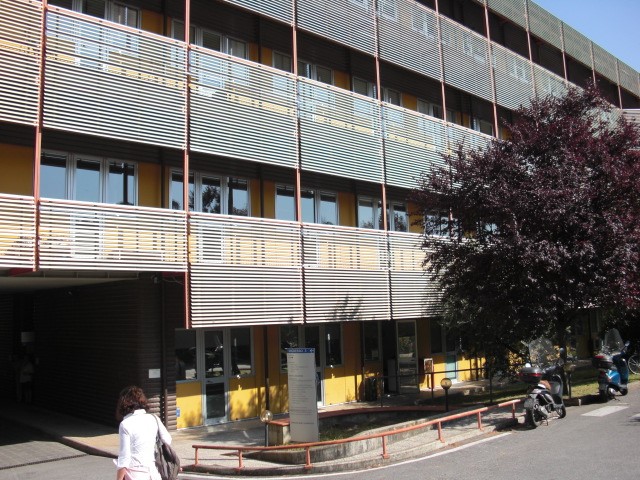
President Franz Gerstenbrand recognised that Luigi Amaducci from Florence, Vice president of the EFNS, already had tight connections to the EU in Brussels and it was decided to build up strong connections in Brussels to promote neurology at the political level. This activity was much supported by Jes Olesen, but all the work could not be delegated to the head office in Vienna. Consequently, a branch office in Florence had to be opened. From then on, Evelyn Sipido was responsible for this task and later on for many others activities that are described in her personal remarks in this chapter.
Branch Office Prague
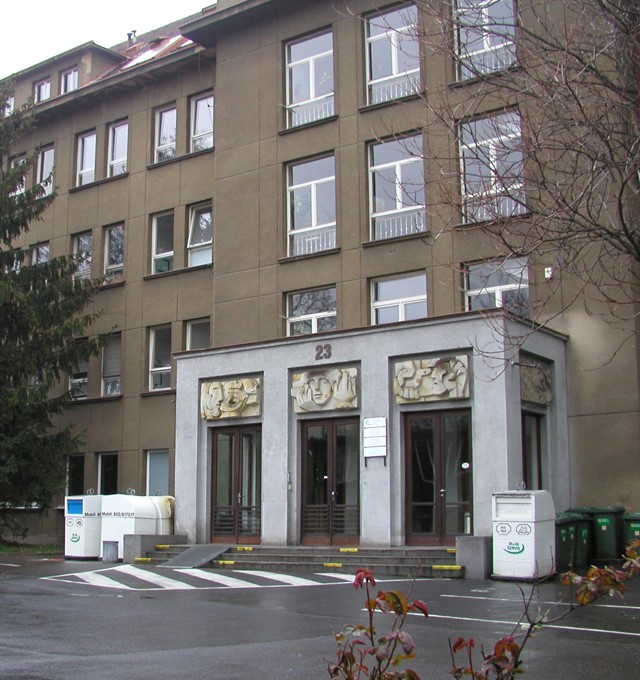
The fall of the iron curtain in Europe and the foundation of the EFNS coincided closely in time and the EFNS, from the beginning, felt very responsible towards our colleagues in the middle and eastern European countries. To have a close connection to these countries another branch office was opened in Prague where Pavel Kalvach was responsible with the help of Magda Dohnalova. This office was very active and efficiently organising important activities such as the department-department programme and the EFNS Academy for young neurologists.
ENFS team
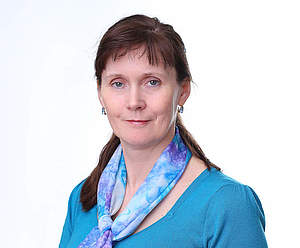
Almost 10 years have passed from the beginning of my work for the EFNS. I had never done such sort of work before and this new work has brought many changes in my life and for my whole family.
My involvement in the administrative preparations and organizational execution of the courses in Třešť as well as of the EFNS Academy in Staré Splavy, my contacts with the members of the Management Committee, correspondence with the Department to Department Programme´s candidates enabled me, not being a medical doctor myself, to meet a number of interesting people and ideas. I have had the opportunity to compare not only the health systems, but also a style of life in different European countries. This colourful experience has enriched my horizons and gave me a pleasant feeling to be a part of the educational progress. It is much rewarding to see our participants of the courses to be satisfied and to see them grateful to the EFNS.
Magda Dohnalová
July 2008
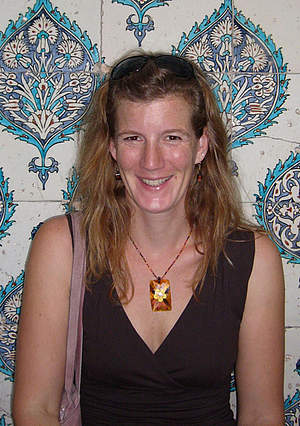
About my time at EFNS:
I started to work as office assistant in 2007. At first, I was impressed by the office itself, the design and the astonishing view. The second thing that really made me want this job, besides working 10 minutes from home, was the fact that there was an opportunity to go abroad for a week. Although combined with a lot of work (as it was the annual congress), I was so happy to escape my “mother and housewife-job” for a while! Me being German gave us a good laughs from time to time, when I could not understand what my colleagues were saying or when I tried to say something in Austrian. It was great to see how fast the small team grew, and how the responsibilities assigned to me gave me a great boost in confidence and I was able to handle a lot of tasks, mainly in the education and congress department, on my own.
Some of the best memories I have are of course related to the annual congress, when you finally met the people you write to on a daily basis. The Presidential dinners with the EFNS delegates were just fantastic, and when we meet now, we have fun talks about the “old” times. To some of these great people I still have personal contact and we share family news. One of my first own tasks were the Scientific fellowships, and I am happy to meet people now who have grown into their career and have once started with one of the EFNS fellowships. Altogether, the EFNS was a great big family, and working here was and is very rewarding.
I am also very happy that I have great colleagues, and that we grew into the new adventure (EAN) together.
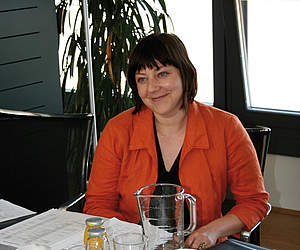
Staff member from 1993 – 2003
Executive Director from 2003 – 2014
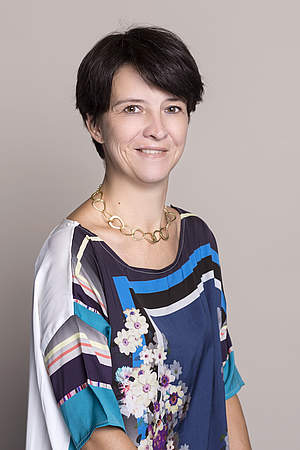
About my time at EFNS:
In 2003 I started to work at the small EFNS Office in the University Campus in Vienna. At that time, we were two at the office. I had been working with all committees, but mainly been in charge of general office matters, website and newsletter, the congress programme and education committee. Medical education has become one of my favourite topics.
In 2004, we moved to our beautiful office overlooking the inner city of Vienna, where we have a lot of space. Bringing knowledge and work in-house has always been a major goal and slowly the space was filled by my dear colleagues and our Board and Committee members, who had now the possibility of using our own meeting space.
It has always been a pleasure to see the organisation growing, and to create a community of European neurologists. Therefore, it was a logical and wise step of incorporating EAN, the “home of neurology” in 2014.
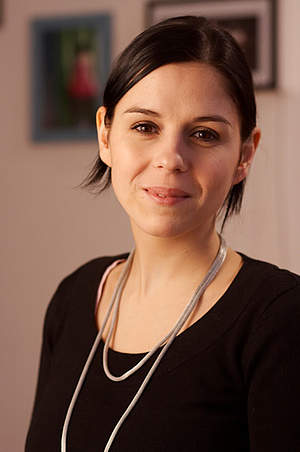
Time is passing fast if you are having a good time! I have joined the EFNS Head Office team in the beginning of May 2009, and it seems to me that time has just flown by. My new job is very diverse and challenging, includes traveling to interesting places, and brought a lot of new and kind people into my life. I am again and again impressed by the many committed people that are involved with the EFNS.
My main tasks at the Head Office in Vienna are to work for the Scientific Committee, the Scientist Panels and the EFNS Guideline Production Group. Besides this, I am also involved with a lot of administrative and organisational work for the yearly EFNS congress. There are always a lot of different things to do, but luckily I am working within a great team.
Since I have finished my studies in cultural- and social anthropology this summer I am working on a full-time basis and I really appreciate to be part of the EFNS.
November 2012
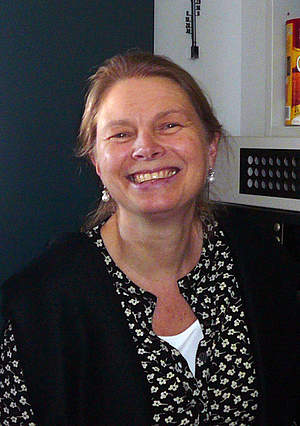
I started working for the EFNS un-officially at the time of the Marseille conference in 1995, and as assistant to Prof. Luigi Amaducci when he took on his position as EFNS Vice President in 1997 as well as the chair of the European Affairs Committee. The work grew steadily.
Just Prior to the 1996 congress in Rome, I met Mrs. Uschi Tschabitscher and Prof. Jes Olesen and I do consider this the “turning point” in my EFNS career.
After Prof. Amaducci’s death in January 1998, Prof. Olesen invited me to work with EFNS on a full-time basis, an invitation I happily accepted. I worked as a consultant to the EFNS for a few months until, in January 1999, I became an EFNS employee.
I continued the work with the European Affairs Committee and was asked to set up a “sister-federation” to EFNS that would bring together the European based patient associations in the field of neurological disorders. A first meeting of some of these federations took place during the EFNS Congress in Seville in 1998. EFNA – European Federation of Neurological Associations (www.efna.net) was officially launched at the European Parliament in 2001 and is steadily growing. Its membership now has about 20 Pan-European neurology related patient associations involved. EFNA has been very active at the European level and works in close partnership with EFNS – now EAN - , EBC and the EC.
Lobbying activities at the EU level showed that there was an urgent need to “speak with one voice” for the brain and its diseases.
Together with Jes Olesen and Mrs. Mary Baker, President of EFNA, the basis for the creation of EBC - European Brain Council – EBC (www.braincouncil.eu) was laid. EBC was officially launched in 2002 and Jes Olesen became its President.
EBC brings together all the major stakeholders in the field of “brain research” ranging from basic to clinical sciences, psychiatry, neurosurgery, patient associations in the field of neurology and psychiatry as well as the pharma and medical device industries. EBC lobbies at the European level for more and better brain research that will benefit the quality of life of those living with brain disorders.
In 2007, Prof. Jacques De Reuck - EFNS President -, to start up a new initiative expanding our work with countries bordering the Mediterranean.
Ten countries joined this group of corresponding societies: Algeria, Egypt, Morocco, Libya, Syria, Tunisia, Lebanon, Palestine, Mauritania and Jordan.
Together with Prof. J.M. Vallat, chair of the EFNS Task Force “Neurology & Africa” I worked on the first EFNS Regional Teaching Course (RTC) in Dakar, Senegal that took place in late June 2008.
Up to date, this first RTC was followed by eleven other ones each held in a different sub-Saharan African country. Prof. Erich Schmutzhard took over the lead from Prof. Jean-Michel Vallat in 2013. The RTCs are organized in cooperation with other scientific societies and has EAN, AAN and the WFN as core sponsors. Many other scientific societies contribute to this initiative. Each RTC sees the participation of neurology residents from many countries of sub-Saharan Africa.
In 2014, EFNS together with ENS formed the EAN – European Academy of Neurology.
I continued my work with the European Affairs, sub-Committee, the Communication - and Education Committee and Task Force Neurology and Africa.
All of this allowed me to stay in touch and work with EFNA and EBC making EAN’s leading role and advocacy at the EU and global level much more significant. The work with the Task Force Neurology and Africa is a great privilege and holds a very special place in my heart.
I am delighted with my work at the European and global level allowing me to be a world citizen!
Eveline M. Sipido, February 2021
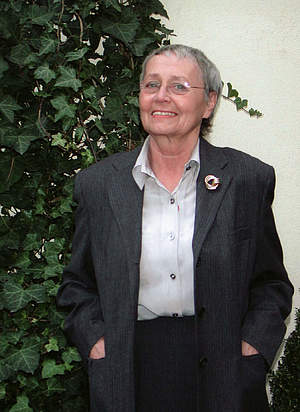
Hellmuth Tschabitscher was a "lifelong" secretary general of the Austrian Neurological Society and he was the head of the Neurological Department at the Hospital Rosenhügel in Vienna. His wife Uschi (Dr. Friederike Susanne Tschabitscher) was helping him with the administration of the society. Prof. Tschabitscher died in 1984.
The office was kept at the Rosenhügel. Franz Gerstenbrand had been a member of the Austrian Neurological Society for a long time and was heavily involved in the daily business. Since Uschi kept working for the society, she also was involved in all the activities of Gerstenbrand. She was well informed about the development of the Pan-European Neurological Society, the concerns about it (see also chapter history), and finally accompanied Franz Gerstenbrand to a meeting in Marseille, which was called by Georges Serratrice. She was enthusiastic about the idea of an EFNS and was not only supporting Franz Gerstenbrand in language but also the idea of this development.
After the well-known foundation of the EFNS in 1991 in Vienna she continued to give her heart and her soul (as Dieter Heiss expressed it) to this new organisation.
After a short time she could hand over her duties of the Austrian Society to a lady she had well trained.
From this time on, she dedicated all her time to the EFNS. Until she died in July 2003, she was engaged from morning to night what ever has to be dealt with.
With her charm, her consequence, her empathy, her endurance and her language skills she gave a team spirit to everyone in the Federation.
As the EFNS was growing she had to look for compassionate co-workers, a job which was not easy, but after all she found a team that took over her legacy.
by Eberhard Deisenhammer and Lisa Müller